What is the contribution of organic agriculture to sustainable development?
The 2030 Agenda for Sustainable Development and the 17 Sustainable Development Goals (SDGs) aim to end poverty and other deprivations, but recognize that this must go together with strategies that improve health and education, reduce inequality, spur economic growth, tackle climate change and preserve natural resources for the future. There is substantial evidence illustrating the fact that prevalent agricultural management practices are not a sustainable option for the future, hindering developed and developing world to reach the SDGs. Organic agriculture is proposed as a sustainable alternative, but its performance under tropical conditions is questioned as long-term studies are scarce. The SysCom program is addressing this research gap since 2007 in three tropical countries (Kenya, India and Bolivia) and has produced valuable insights into system performance. Based on these studies, following conclusions are drawn to illustrate how organic farming can contribute to acheive several SDGs by 2030:

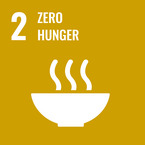
The crop productivity (yield) of organic systems can equal conventional systems yet varies depending on the type of crop and the management practices. The variation in yields of annual crops could primarily be explained by slow release of nutrients from applied inputs or their lower nutrient content as well as pest and disease pressure. For instance, legumes can achieve similar yields in organic and conventional systems because they are able to assimilate nitrogen from air. On the other hand, in cereals (e.g. wheat or maize) or in nutrient demanding crops like cotton cabbage and potato, when nutrient availability did not meet the crop demand at crucial growth stages, this can be a yield limiting factor. Application of the correct amount of organic inputs (nutrient content) at the right time is necessary to improve the yields of crops in organic system. However, pests and diseases can severely reduce yields in organic systems (e.g. in vegetables). This is often the case if organic systems try to mimic conventional methods and only substitute conventional pesticides with bio-pesticides/botanicals. This was evident in cocoa, where a pest and disease control approach focused on management practices and not replacement or use of external inputs, resulted in comparable incidence levels between organic and conventional systems. Furthermore, in cacao production systems, our results show that the complexity of the system (monoculture vs. agroforestry) has greater influence on total productivity than the type of farming system (organic vs. conventional). Although the monocultures produce higher cocoa yields, agroforestry systems achieve a higher total productivity with a diverse range of products (cocoa, plantain, banana, and other fruits/cereals/tuber crops).


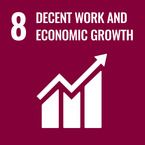
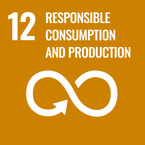
Profitability of organic system was found to be mainly influenced by crop productivity. However, by employing a systemic approach and implementing good agricultural practices, organic systems could be managed successfully and profitably. Costs for external (market purchased) inputs are often lower in organic, while the organic produce can fetch higher price in market, compensating for the economic loss due to lower yields in certain crops. However, labour (e.g. for fertilizer preparation) is a prominent factor contributing to production costs in organic systems (Kenya). Our results show that organic systems can achieve higher returns on production costs (India) and equal returns on labour (Bolivia), making it a suitable option, particularly for capital-poor smallholder farmers.

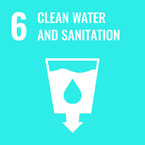


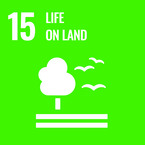
We also found that organic systems can build up soil fertility over the long-term if managed well. Soil organic carbon was increased after a decade of organic inputs through compost, liquid manure, mulch (Kenya), compost, litter fall, and cover crop (Bolivia). We could also show that organic systems build up other nutrients, have a higher biological activity and improve soil physical properties. Nonetheless, certain nutrients e.g., nitrogen (cotton and wheat in India) or phosphorus (Kenya) are less available in organic systems because they are applied in less plant-available forms. Such missing nutrients at key crop stages lead to lower yields in organic systems.
Our results also show the additional benefits that organic systems offer to humans as well as to the environment compared to conventional systems, e.g. through: i) reduction of pesticide residues in soils, crop products and run-off water (Kenya), ii) higher concentrations of vital elements in food crops (India), iii) enhanced flora and fauna diversity and abundance, and iv) a reduction of non-renewable energy resources used (Bolivia).
Besides a comprehensive comparison of farming systems across tropics, our scientific findings as well as the experiences made in and around the SysCom project, also highlight the needs for appropriately incentivizing sustainable systems, strengthening the market linkages as well as innovation development and capacity building.
 tap and then scroll down to the Add to Home Screen command.
tap and then scroll down to the Add to Home Screen command.